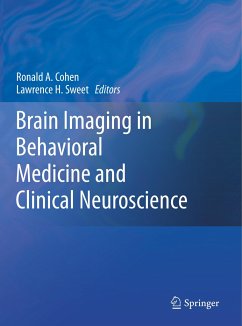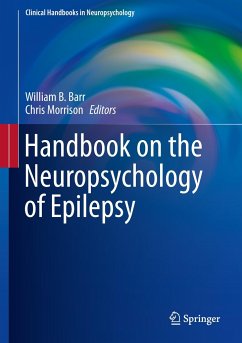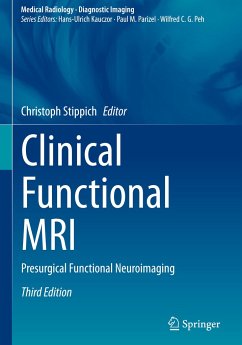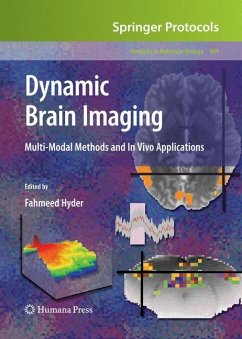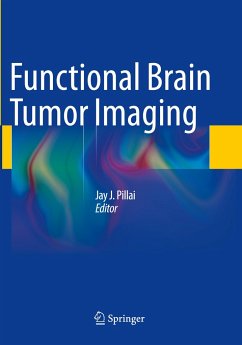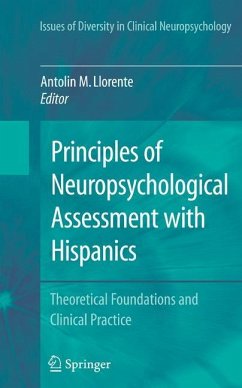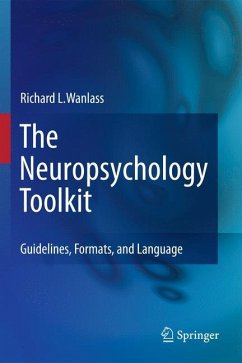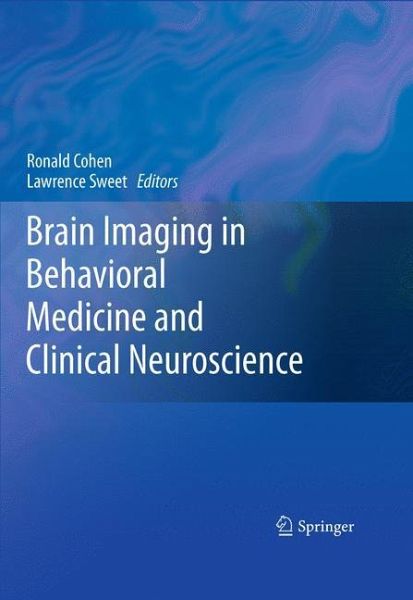
Brain Imaging in Behavioral Medicine and Clinical Neuroscience
Versandkostenfrei!
Versandfertig in 6-10 Tagen
77,99 €
inkl. MwSt.

PAYBACK Punkte
39 °P sammeln!
Rapid developments in brain neuroimaging methods have occurred over the past decade. These advances have revolutionized cognitive and behavioral neuroscience, and are likely to have major influence on clinical psychological, psychiatric, and neurological practice over the coming years. There are a number of excellent books that focus on specific neuroimaging methods, such as fMRI. Furthermore, cognitive and neuroscience texts have increasingly incorporated functional brain neuroimaging. Yet, there are few books to date that consider and review emerging research in the application of brain neur...
Rapid developments in brain neuroimaging methods have occurred over the past decade. These advances have revolutionized cognitive and behavioral neuroscience, and are likely to have major influence on clinical psychological, psychiatric, and neurological practice over the coming years. There are a number of excellent books that focus on specific neuroimaging methods, such as fMRI. Furthermore, cognitive and neuroscience texts have increasingly incorporated functional brain neuroimaging. Yet, there are few books to date that consider and review emerging research in the application of brain neuroimaging methods for the study and assessment of behavioral and cognitive disorders. This book provides a broad coverage of current research trends in the clinical application of brain neuroimaging methods in the context of behavioral medicine, neuropsychology, and related areas of medical psychology. It uniquely integrates current neuroimaging methods and studies with current behavioral medicineresearch, and presents knowledge derived from recent developments in the fields of functional and structural brain imaging. By integrating information from experimental behavioral medicine with clinical insights, this book will serve as a source book for neuropsychologists, psychologists, neurologists, psychiatrists, and other professionals in both clinical practice and academic context. This integration results in the reader having a greater understanding of how the brain controls behavior, the disturbances of behavior that may occur with different disorders, and what clinicians should consider when assessing or working with patients with behavioral problems.




